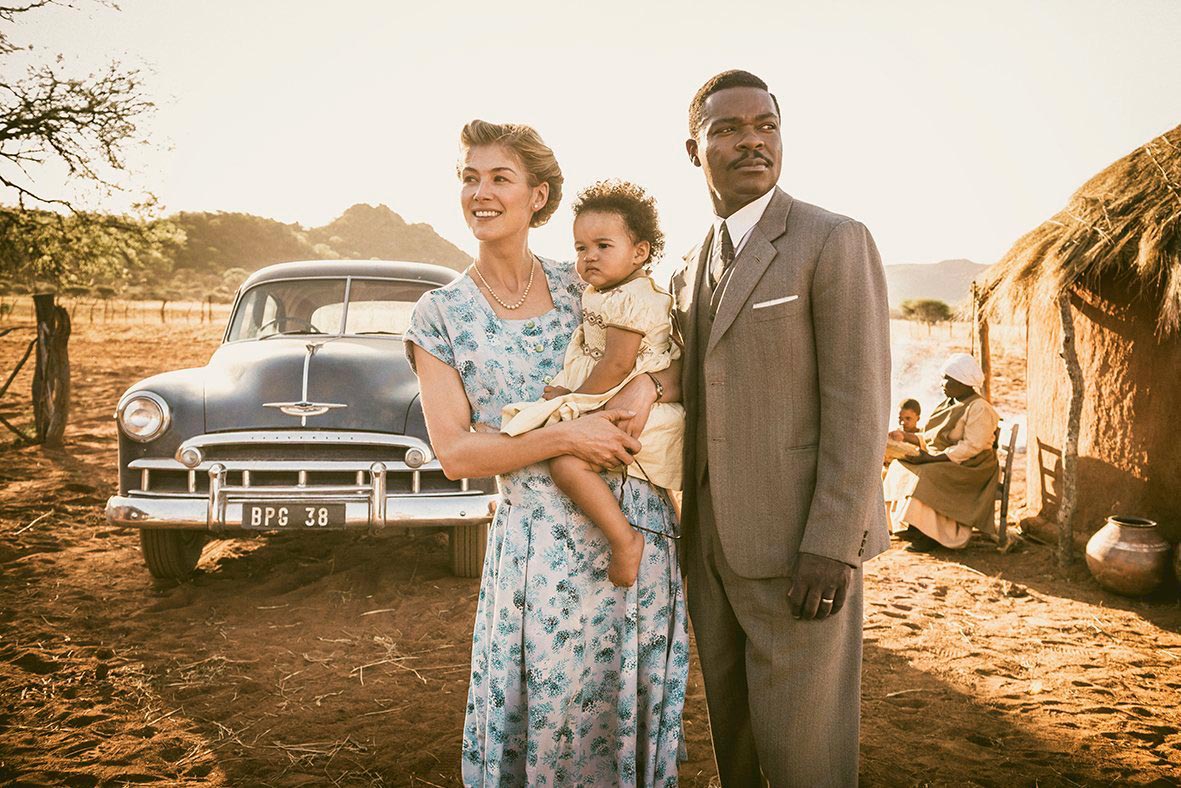There shouldn’t be anything more enjoyable than watching David Oyelowo and Rosamund Pike making their way through a biopic deftly directed by Amma Asante (Belle). Oyelowo has played compelling leaders before, with his should-have-been-Oscar-nominated performance as Martin Luther King Jr. in Selma; Pike’s last role was an unexpected breakout, after a decade of work, as the scheming Amy Dunne in Gone Girl.
Pike’s role here is nothing like Amy, and it’s somewhat strange to watch her be so contained, her face set in a constant expression of surprise. She plays Ruth Williams, who in 1947 London falls in love with Oyelowo’s Seretse Khama, a law student with a nearly preternatural sense of calm about him. (Pike almost seems to flutter around him, and she is no flutterer.)
Their relationship suffers some sadly unsurprising bumps — racist yobs in the street, her father’s disapproval — but the real challenge is something else: Seretse is the prince of Bechuanaland (now Botswana), and international forces would prefer the two stay apart.
When we first meet Seretse, he’s talking about the imperialist mind, which is key to the film. It’s a romance, sure, but Asante and screenwriter Guy Hibbert rush through the courtship and marriage, eager to get to the meat of the story: Seretse’s conflict with his regent uncle and gradual understanding of what his marriage means on the international stage.
If Hibbert skimps a bit on character, he does a solid job setting out the players (which include Tom Felton, looking like a lost Indiana Jones villain) and unspooling the intrigue that leads, inevitably, back to British interests. Seretse’s uncle disapproves of his marriage, but so does the British government — and their reach is vast.
Asante’s film is a study in contrasts: grey, rainy London and sunny Bechuanaland; Seretse’s meetings with prim officials in the UK and the large gathering of his people back home; the genuine hurt and anger of his sister and the fussy disapproval of the British officials’ wives.
Ruth, pale and sheltered, has no idea what she’s getting into; Seretse has some, but underestimates the British need for control (and the power of neighboring South Africa). Reminders of colonialism are constant: You can’t look at what the people of Bechuanaland are wearing and not see a British hand.
A United Kingdom rests lightly on its stars’ shoulders. Oyelowo in particular is utterly at ease, a man born to leading roles. The film makes nothing of the fact that its principals are notably older than the people they were playing (Seretse was around 27 when he met Ruth; Oyelowo is 40), and it’s a genuine treat to see a romance bloom on screen between two people long out of their 20s.
Still, despite all the pieces being in place, the film never quite achieves liftoff, instead staying a steady, earthbound reminder of how people — even royalty — live under the boot of empire. (Bijou Art Cinemas)
